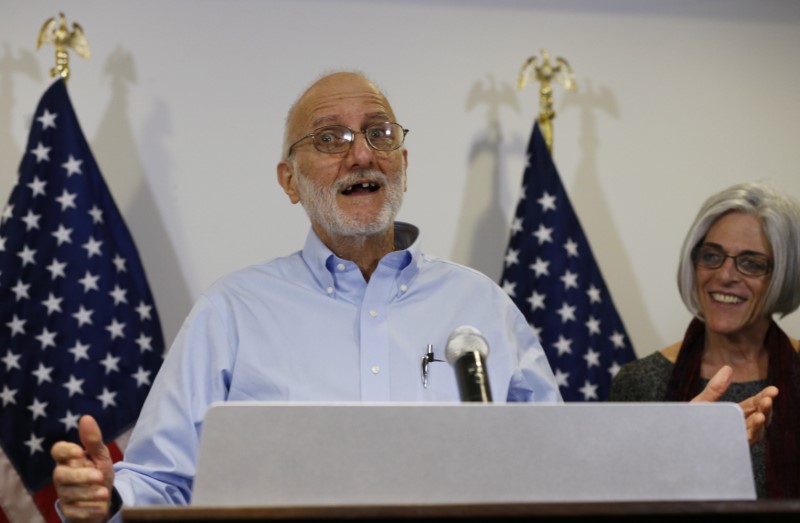By Sarah Marsh
HAVANA (Reuters) - When Alan Gross heard the Trump administration's renewed U.S. push to expand internet in Cuba, disbelief washed over the American who spent five years in a Cuban jail for trying to establish clandestine communication service on the Communist-run island.
"My first response was 'Are you kidding me?" Gross said in a telephone interview with Reuters.
Gross worked in Cuba in 2009 for a U.S.-government funded program to promote political change by increasing internet access in a country that has one of the lowest web penetration rates in the world.
In January, the U.S. State Department said it was convening a Cuba Internet Task Force to examine ways of expanding information access and independent media in Cuba.
Havana protested the move that it said attempted to violate its sovereignty, highlighting the military connotation of the expression "task force."
Cuba views such programs as part of longstanding U.S. attempts to topple its government.
In 2009, Cuba arrested and later sentenced Gross to 15 years in jail, a move that put on hold a warming in U.S.-Cuban relations under former U.S. President Barack Obama, a Democrat.
It was only with his early release in 2014 that Obama and Cuban leader Raul Castro could announce a long-negotiated detente, hoping to end five decades of hostility.
That was before Republican Donald Trump became president, vowing to roll back on the normalization of relations.
"We are supposed to learn from our mistakes," said Gross on Thursday.
"I learned the hard way that it's illegal to distribute anything in Cuba that's funded in full or part by the U.S. government," said the 68-year-old, who lost five teeth in jail and around 115 pounds (52 kilograms).
"Until the government of Cuba wants the kind of assistance United States is capable of providing, the United States shouldn't be doing stuff there," said Gross.
Cuban state-run media has written extensively this week about past U.S. attempts to manipulate telecommunications for political ends. Washington, for example, set up a social media network for Cubans called ZunZuneo even after Gross had been jailed. It ran from 2010 to 2012.
In the case of Gross, he imported banned satellite communications devices and other high-tech gear in his luggage and helped install it at Jewish centers in Havana, Santiago and Camaguey during five trips to Cuba in 2009.
Gross noted Cuba had vastly expanded internet access of its own volition during his time in jail.
The U.S. government should discuss the issue of internet directly with Cuba, providing details for example of how it could boost economic growth, he said.
"There are so many things that could be happening in a positive and constructive way," he said.
Since Obama's detente for example, various U.S. telecoms companies have reached deals with Cuba to provide roaming to their customers on the island.
Asked if it had invited Cuban officials to the first public meeting on Feb. 7 of the task force, the U.S. State Department said it was "open to the public as space allows."
"Federal Advisory Committees, such as this task force, provide objective advice in a transparent manner from a variety of perspectives, and are accessible to the public," it said.

Gross said he would return on vacation to Cuba "in a heartbeat" if Cuban officials let him, to meet up with the families of his former fellow inmates and explore the country.